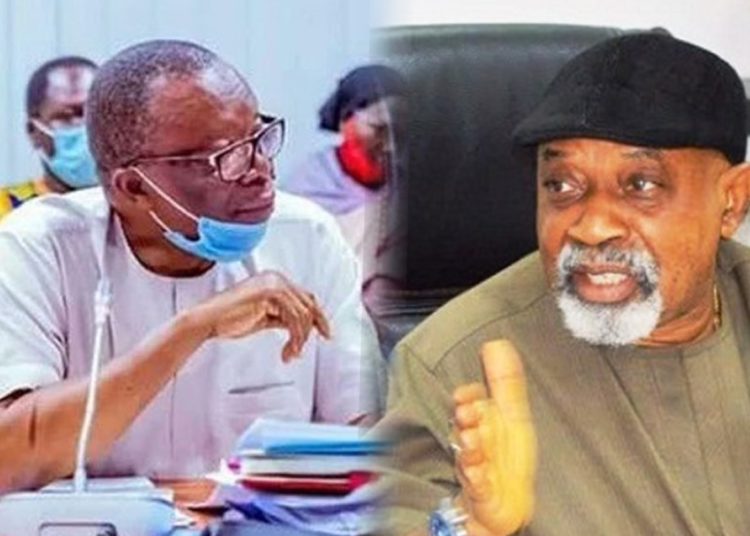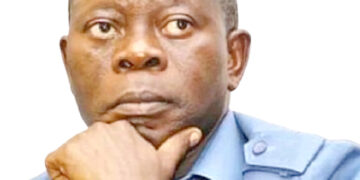By declaring its on-going strike indefinite, the Academic Staff Union of Universities (ASUU) has erased even the tiniest of hopes that the lingering disagreement between it and the Federal Government of Nigeria (FGN) will be resolved anytime soon. The Union’s decision is a clear defiance against all the persistent calls by a lot of concerned people for the suspension of the strike.
Strike is ASUU’s clearest language and, of course, the most detestable to all those who have already dismissed it as old-fashioned and even inimical to the university system. Anytime ASUU embarks on strike, a lot of arguments over the lecturers’ entitlements as well as condition and autonomy of the universities dominate public discourses.
The noise about ASUU in particular and the university system in general is now much louder than it had ever been because some facts about the prolonged rift between the union and the government have begun to emerge. A lot of voices that are either for or against ASUU have already rented the air, thereby making the controversy over the whole matter to continuously thicken.
On its part, ASUU, which commenced its on-going strike on February 14 2022, is expectedly and consistently putting up a defense for its actions and is therefore militantly committed to continue with the fight. It, in fact, considers every opposition to it as an act of sabotage against the university system in Nigeria.
Since 2009 when ASUU entered into an agreement with the government, the terms of which have, as alleged by the union, not been fully met by the other side, there has not been the necessary stability that is required to keep the system going. Even with the numerous renegotiations of the terms, the issues over which there is disagreement between them have remained unresolved.
It is, perhaps, the latest happenings that have indicated the heightened disagreement between the government and the union as each one of them, rather than soften, has taken a much harder stance. Both the government’s insistence on the application of ‘no work, no pay’ principle and the ASUU’s declaration of the strike as indefinite have re-enforced the belief that they are now much further away from each other.
The first shocker after the last FGN-ASUU join meeting came from the Minister of Education, Adamu Adamu, who said although the two parties reached agreement on almost all other issues, the resolve of the government to withhold the salaries of the striking lecturers in line with the ‘no work, no pay’ policy made a full resolution of the crisis impossible. His argument that it would not be proper to pay salaries for a work not done has already generated a debate that has continued to widen the scope of people’s understanding of the various aspects of the matter.
In a press statement titled—Between ASUU’s Genuine Demand And Adamu Adamu’s Buffet Of Lies—which was a harsh response to FGN’s position as explained by the Education Minister, the Union’s president, Professor Emmanuel Osodeke, complained that in the last five years, the Federal Government “engaged ASUU in fruitless and unending negotiation without a display of utmost fidelity.” He, in the statement, mentioned that the government, even after it set up two more committees, the first one under Professor Nimi Briggs and the second one under Professor Munzali Jibril, to renegotiate the terms of 2009 agreement with the union, it refused to implement the recommendations contained in the report of each of the committees.
The union continuously argues that it is the government’s reluctance to address issues contained in the 2020 Memorandum of Action which include the release of the balance of one tranche of the Revitalization Fund for the settlement of the Earned Academic Allowances (EAA) and the demand for the adoption of the University Transparency and Accountability Solution (UTAS) to replace the controversial Integrated Payroll Personnel Information System (IPPIS) that has caused the problem. It is a breach that ASUU considers as unpardonable and which, therefore, has constituted a solid basis for confrontation with the government.
But the union is not finding it easy as the strike has thrown up some challenges that have already appeared too enormous for it to surmount. Apart from the government’s insistence on the application of the ‘no work, no pay’ policy which, in a letter from the Federal Ministry of Education to the Chairman of the Committee of Pro-Chancellors of State-owned Universities (COPSUN) dated 26th August 2022, was described as part of the country’s Labour Law and Common Law”, there is also a stiff resistance from a lot of the union members and a threat by some chapters to quit.
A combination of what is largely considered as the insensitivity of ASUU to the utmost concerns of Nigerians over the effects of the strike on their children, existence of alternatives to public universities and some political factors must have accounted for the emergence of the challenges that ASUU is currently facing. Even without thoroughly examining its complaints, many people have simply concluded that ASUU is doing more harm than good to the system.
Additionally, there has been the expectation that the union will reckon with the fact that public universities will hardly get the required attention from the government because there are options within and outside Nigeria for the children of the country’s leaders. The high number of such children currently studying in either private universities in Nigeria or even foreign universities should have suggested to ASUU that the recognition for public universities, particularly at the level of government, is no longer considerable.
The challenge from some of its members may not entirely be new to ASUU as it is perfectly usual for such a big union to experience internal problems. It is, after all, the approach of its leadership to internal and external crises that determines the outcome of any effort towards the realization of objectives.
However, ASUU, whose president was recently provoked into making some uncomplimentary remarks on some universities over which he is still being incessantly attacked is undergoing the severest of trials. The gradual loss of public sympathy for the union which results in the intensive interrogation of its actions as well as the attitudes and pronouncements of its leaders is a monumental setback that it may hardly be able to overcome.
Considering the clear accusation that ASUU has unjustifiably constituted itself into an opposition political party that disagrees with government on almost all matters, it is not known how the union will convince Nigerians that it is decision to continue with the strike was informed by a desire to, as explained by its president, “prevent members of the Nigerian ruling class and their foreign collaborators from further destroying whatever is left of our public universities.” A lot of the emerging arguments over this particular industrial action and the general approach of ASUU to almost all issues about university education are an indication that the description of the strike as rescue mission will hardly be accepted as correct.





